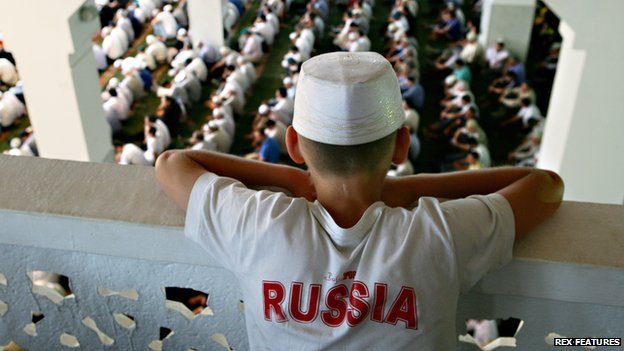
Dagestan’s Plan to Bring Home Muslims Studying Abroad Unlikely to Work
Publication: Eurasia Daily Monitor Volume: 10 Issue: 188
By:

Dagestani leader Ramazan Abdulatipov last week (October 14) directed the district and city anti-terrorist commissions in his North Caucasus republic to launch a campaign to recall all Dagestani young people now studying abroad, especially in “crisis countries” where “various kinds of “terrorist actions, revolutions and the like” are taking place. Parents who do not succeed in having their children return will face serious but, as yet, unspecified sanctions (interfax-religion.ru/?act=news&div=52975).
Abdulatipov’s motives are both understandable and obvious: he clearly hopes that these Muslim students will return home before their training and experiences will, in the words of one Russian Christian Orthodox website, turn them into “Wahhabis” (rusk.ru/newsdata.php?idar=63205). But it is far from clear whether his policy will work as he intends. Many such students—their exact number is unknown, but clearly is in the hundreds—will simply ignore this order, and both they and their parents will be further radicalized by Makhachkala’s actions. But others will return with their new views and thus constitute yet another threat to ethno-religious stability in what is now the most volatile republic in the North Caucasus.
Those conclusions are suggested by the well-documented experience of Tajikistan, which three years ago launched a program similar to the one Abdulatipov now has. When Dushanbe began, there were at least 2,500 Tajikistanis studying in Islamic universities and madrassas (Islamic seminaries) abroad. Abdurakhim Kholikov, chairman of Tajikistan’s Committee on Religious Affairs, claimed last year that just over 2,000 of those “who had been studying in foreign madrassas illegally” have returned, a figure that means at least 400 remain abroad despite that country’s appeals (avesta.tj/sociaty/10745-v-tadzhikistane-razrabotan-mehanizm-otpravki-studentov-v-zarubezhnye-medrese.html).
In fact, the number remaining abroad is almost certainly much higher than that. Some independent estimates have put the figure as high as 6,000. And in recognition of that reality, Dushanbe has announced a program that will allow some who are now abroad to legalize their status and others who wish to go abroad to do so with official permission—arrangements that, at least so far, Makhachkala has not copied.
Those who remain abroad may constitute a long-term problem both in Tajikistan and Dagestan, but those who return represent an immediate challenge because their numbers and their commitment to Islamist values are such that the authorities are not in a position to control them, however hard they try. Again, Tajikistan’s experience is instructive in that regard.
Last year, a group of Tajikistan scholars commented on trends within Islam in that Central Asian country and suggested that the Islamization of Tajiks is increasingly occurring not only in rural areas but in the historically “more secular urban population,” which, because of greater wealth, has been the source of more students going abroad (kamolkhon.com, January 9, 2012).
In particular, orientalist Ilkhom Nadziyev has said that “the level of trust of Tajikistan’s population toward the power structures, as research shows, is low. Many of the residents of the country consider religious leaders to be less supported by corruption.” As a result, the latter enjoy more trust. And Tokhir Sattorov, a political scientist from Tajikistan, noted that “the powers that be at first tried to respond to the religious feelings of the population, but then they stopped and turned back. The impression has been created that [Tajikistan’s authorities] do not have the [necessary experience] or even that they are worried by their own unexpected moves earlier.”
Repression does not work against the Talibanization that they fear is taking over their society. And blocking students from studying abroad, given how many thousands already have, appears to represent an effort to slam the barn door shut after the horse has fled. Indeed, the rapid expansion of mosques in Tajikistan means that almost anyone who has some knowledge of Arabic can become a mullah or at least gain an audience. Given the lack of trained Arabic speakers within Tajikistan, those who have studied abroad and who possibly had come under radical influence are thus among the most likely to be chosen to lead prayers.
The situation in Dagestan is the same. While some Dagestani Muslims have learned Arabic within their own republic in the two decades since the collapse of the Soviet Union, a large share of these Arabic speakers consists of those who have studied abroad over that period. Bringing more of them home, at least in the short term, is almost certain to increase the number of radicals in the pulpits of mosques there.
That Abdulatipov should adopt this strategy, which has failed in Tajikistan, shows how difficult the situation now is in Dagestan and how few alternatives Makhachkala—and its backer, Moscow—currently have.




